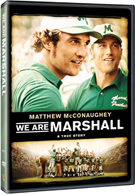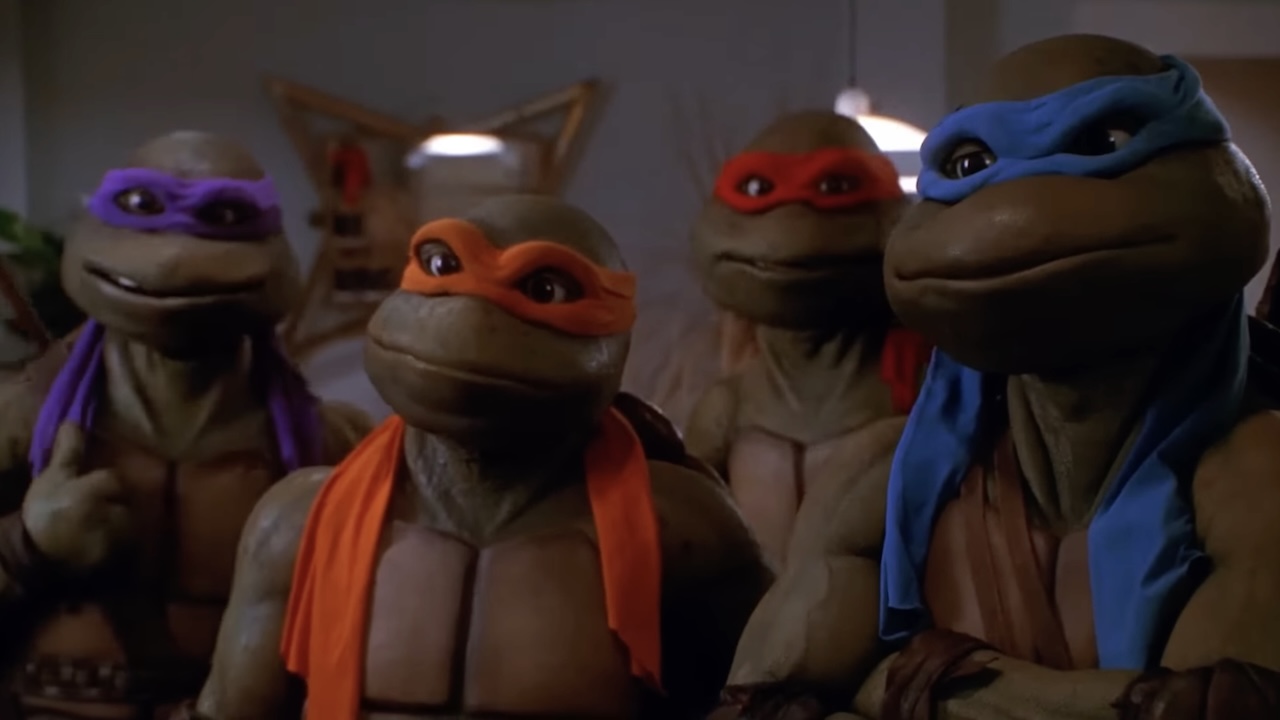There are two extremely difficult types of films to successfully make: films based on true stories and ones that revolve around a sport. Sports movies are often formulaic, manipulative and cliché infested, to the point where they’re all made in the exact same mold, with only the slightly altered subject matter to set them apart. Films “based on true events” are delicate endeavors because their stories must properly represent the real people and events they depict. Unfortunately for We Are Marshall, it’s the true story of a football team that inevitably succeeds only in spurts, and is ultimately undone by McG’s (is that a name?) lackluster direction and poor storytelling. By the end of the film, one can only wonder what it could have been in the hands of a more capable director. We Are Marshall tells the story of the 1970 Marshall University football team, who are tragically killed when their plane crashes while returning home from a road game. The 75 deaths of players, coaches, and fans tears through Huntington, West Virginia, a town that lives and breathes Marshall Football. But what some people don’t realize is that it’s more than just a football team on the plane; it’s sons, brothers, fathers, fiancés, and friends who don’t return to Huntington that night. The students and surviving players feel it’s their duty to carry on the team, while the victim’s families don’t see any good left in football. Saddled with these issues of grief, mourning and respectful remembrance, school President Donald Dedmon (David Strathairn) finally succumbs to the pressure of the students and hires a new coach. The man for the job is Jack Lengyel (Matthew McConaughey), but only because he’s the lone coach who’s willing to take on the responsibility of rebuilding the Marshall Football Program, and bringing the town of Huntington back to life.
With its footballs slicing through the night air while players with outstretched arms leap in slo-mo anticipation, We Are Marshall’s biggest fault is that it brings nothing new to the sports genre. Instead it has the speeches, the team infighting and subsequent re-bonding, the proverbial familial support for the bewildered coaches and of course, the inevitable dependence on the final lob to the end zone for its climactic finale. How many times do we need to see it before it becomes annoying? It’s as if McG and screenwriter Jamie Linden used the previously released football films of 2006 (Gridiron Gang and Invincible) as a storyboard for We Are Marshall; they’ve essentially regurgitated scene after scene from these and many other mediocre football movies. Rather than attempting to use film as a vessel for presenting the tragedy with a refreshing perspective and the vigor it deserves, McG forces a tired and lazy effort that’s only watchable because of some decent acting and the sorrowful subject matter.
Matthew Fox provides the film with its only genuine life in his portrayal of Red Dawson, the guilt-ridden lone survivor of the 1970 coaching staff who avoided the fateful crash when he decided to take a recruiting drive instead of the flight home. Strathairn gives a solidly subdued performance as the caring school President, and McConaughey is merely passable as the happy-go-lucky Coach Lengyel. In a film that seriously lacks positives, at least Fox provides a few scenes of resonance and quality that extend beyond situational manipulation and graze the threshold of good filmmaking. Unfortunately, it’s much too little and way too late to salvage anything above mediocrity for Marshall.
In bringing us a film that jumps from being emotionally gripping in one scene to utterly boring the next, McG shows he’s truly weak behind the camera, and last in the long line of directors who’ve failed to bring sport to the big screen. Maybe it’s just too daunting to fuse these uplifting sports dramas with enough cinematic value to please anyone other than a die hard sports fan who’s blind to the make-up of a truly great film, because that’s certainly the case with We Are Marshall. Despite being largely disappointed with the film, I still had high hopes for the Special Features section. Most of this optimism stemmed from my expectation that there’d be some sort of documentary-like feature with the real life characters of the film, but once again I was let down. There’s only one redeeming quality to the disc section of We Are Marshall, and that’s a thirty-minute special called Legendary Coaches that actually has very little to do with Marshall at all.
Legendary Coaches features five-minute mini interviews with various coaches, starting with Jack Lengyel (okay so they do give a pity mention to Marshall) and a bunch of others who’re far more legendary than the man who led the Young Thundering Herd. These include Bobby Bowden, Pat Summit, Lute Olsen, John Wooden and George Horton, all of whom have very interesting and heart-felt thoughts on their coaching experiences. Lengyel does provide an insightful look into the issues that he faced in 1971, but it’s much to short and simply leaves you wanting more. As much as I enjoyed Legendary Coaches, it’s beyond me why they didn’t include a longer and more in depth conversation with Lengyel, who could’ve added a lot more perspective to McG’s film.
After the thirty-minute mini-show, there’s literally nothing even remotely special about the rest of the features section. There’s a lengthy commercial for the state of West Virginia, an advertisement for Marshall University, and a theatrical trailer of the film – that’s it. Pretty bare for a Special Features section, especially for a film with significant feature potential; you could almost make a whole other movie with all of the background information. And after doing some research, I discovered that they’ve done exactly that. Marshall University: Ashes to Glory is a documentary style combination of interviews with people who had close ties to the Thundering Heard and the town of Huntington. Even though I’ve never seen it, I suspect it’s the best material on the subject, and certainly a better option than buying We Are Marshall.
Your Daily Blend of Entertainment News

